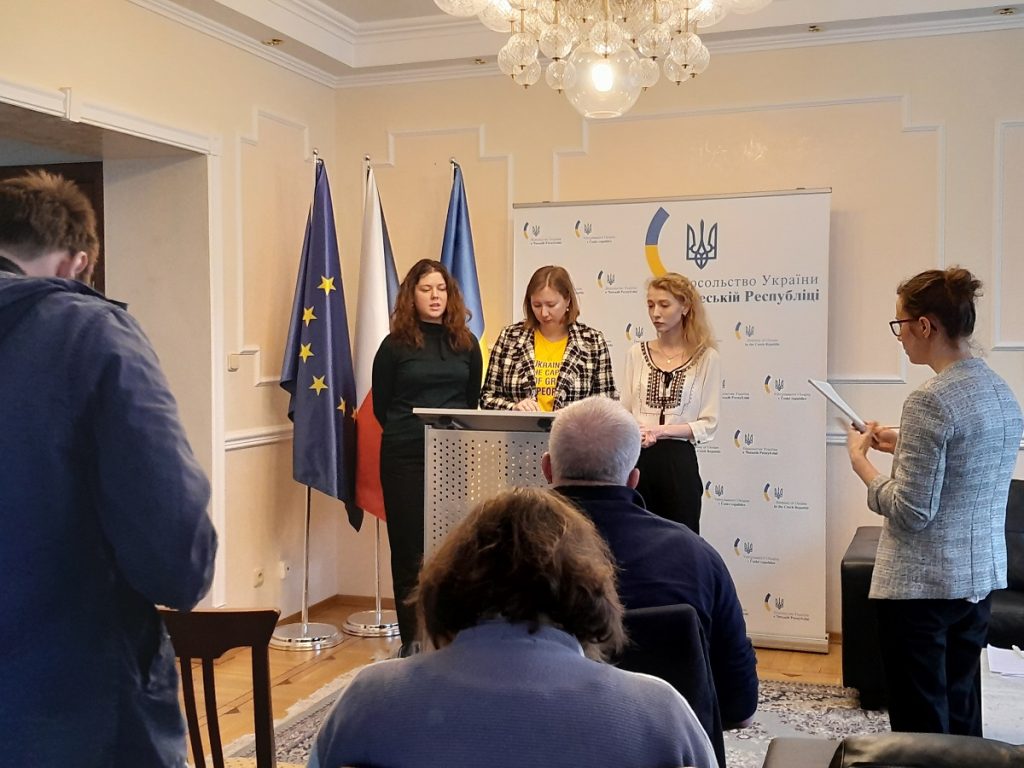Nesehnutí has been supporting Ukrainian civil society since 2014. But at the end of February, when the Russian invasion began, the nature of the support changed fundamentally. For the last seven months, Nesehnutí has been providing material aid, helping victims of sexual violence, supporting independent media, and assisting those who are on the run. Members of the organization help day and night. Every day brings a new little story. And sometimes the same happens at night. Here, Nesehnutí member Martin Hyťha describes one such night. Photo credit: Nesehnuti.
Night two: definitely not young anymore
It’s two, maybe three o’clock in the morning, when we cross the border from Poland to the Czech Republic. We recognize it mainly by the surface of the road, which is suddenly much bumpier. We only rarely pass other cars. The highway is almost empty, which only further enhances the hypnotic effect of the cones of lights pointing at the road. It’s up to me to get an empty car to Brno, while my colleague rests next to me. He has every right to do so – he was heading in the opposite direction before five in the morning.
In Prague, he first picked up three female human rights defenders from Ukraine, for whom we organized a meeting with political representation, authorities, and the media. There they provided an update on the current events in Ukraine and the need for a mission monitoring the war crimes of the Russian troops. On the basis of this visit, for example, dozens of bulletproof vests for people monitoring war crimes in Ukraine were delivered.

Together with Katerina, Marija, and Olga, our colleague also loaded eight boxes of medical supplies. In Brno, we transferred the whole content of the overcrowded car into a van, added a second pile of boxes of medical supplies, and set off for the Ukrainian border. The traffic jam in Krakow, as well as the rain and snow, did not make our journey easier. On the other hand, the Polish policemen, who stopped us on suspicion of speeding, let us go after a colleague answered a strange question about his parents’ names.
We finally reached the Ukrainian border, and we said goodbye to the human rights activists. But instead of watching as they walked in the rain toward their motherland, we started looking for Lenur, who was supposed to pick up our cargo of medical supplies. But because we were late, he had already joined the convoy of vehicles waiting to be let back to Ukraine. There was currently a curfew in the Lviv region, and Lenur understandably wanted to be in Lviv by then. At the last checkpoint on our way to him, we were stopped by the police – we looked like we were trying to overtake the line of vehicles and cram to the border crossing. We tried to explain our situation in Czech, English, and then Russian. Nothing worked. “Sprechcen sie Deutsch?” the policeman asked. But all I can think of is “Ich habe Hunger.” Probably not because of that, they let us through in the end.
It was raining and Lenur assembled the boxes with medical supplies into the van like Tetris pieces. They eventually fit. We had a few boxes left for Taťána to pick up, but she didn’t pick up the call. We speculated whether Lenur could also take away the remaining material aid, but he was not able to put any more boxes into the car. Not even with the use of brute force.
So as to not ride back in an empty car, we offered free van seats for car-sharing and arranged a ride for a woman named Valeria. She was hiding from the rain under the roof of a shop in the nearby village of Biedronka, and she looked impoverished. I chased away the urge to ask where she’s heading and what happened to her. Instead, I tried to cheer her up with snacks like vegan salami, cheese, or chocolates.
Taťána finally called back, to say she was waiting at the border and would hopefully be there soon. We waited in a dark park near the train station, trying not to look like human traffickers. To dispel this impression, I explained to Valeria the details of our work and help for Ukraine. Hours dragged on, and when Taťána finally arrived, the night was definitely not young anymore.
Next motorway exit – Rousínov. We would reach Brno in a while. I soon dropped off my colleague at their home and returned the van from car-sharing service Autonapůl, which provided us with a special rate for our Ukraine support. Despite the heavy fatigue, I can’t help but praise how today, thanks to the willingness and help of many people, everything worked out in the end.
You can support the activities of NESEHNUTÍ through the collection on the Darujme portal.







